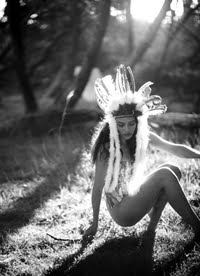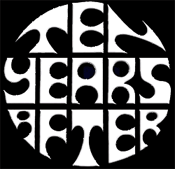The egos involved in keeping one of the world’s first supergroups powered was astronomical. One guy was a cantankerous madman, another continuously tried to wrestle control of the group and another was called “God” by his fans. Did anyone really expect the band to last more than a couple of years?
From the start, those egos clashed. Eric Clapton came to the group as its main attraction. Star-making gigs with the Yardbirds and John Mayall’s Bluesbreakers sealed his reputation as one of his generation’s premier guitarists. Surprisingly, he wasn’t the problem. Bassist Jack Bruce (a member of, among others, British blues-rockers Blues Incorporated, Manfred Mann, and the Bluesbreakers) and drummer Ginger Baker (who played with the Graham Bond Organisation) were constantly fighting.
Recording of Cream’s first two albums – 1966’s Fresh Cream and the following year’s Disraeli Gears – went relatively smoothly, yielding hits like “I Feel Free” and “Sunshine of Your Love.” But by the time they got around to recording 1968’s Wheels of Fire, which was released in July, things had taken a more abusive turn, with each member trying to overpower the others by sheer instrumental volume.
The studio half of Wheels of Fire – a double LP that includes a live disc – was recorded during three separate sessions. The concert songs were culled from two performances in San Francisco in March. Relationships had deteriorated so much by that point that Bruce and Baker would frequently argue, on- and off-stage. At one show, Clapton was so fed up with their battles that he walked off. Rumor has it that neither of his bandmates noticed.
So finally, on July 10, 1968, after mulling the idea for almost a year, Clapton announced that Cream were breaking up. But the band actually stuck around for most of the rest of the year, playing a farewell tour (which culminated in a final gig at the Royal Albert Hall in London on Nov. 26) and recording three songs for one last album, Goodbye, which was released in 1969 and filled out with a handful of live cuts from the farewell tour.
The band’s final show was aired on the BBC in January 1969. But by then, they were pretty much just going through the motions to fulfill whatever contractual obligations were left. At their peak, which is scattered among their first three great albums, Cream laid the foundations for bands to go harder, faster and louder. It turned into a bit of a mess during the last months, with egos colliding and amps cranked. But it really couldn’t have ended any other way.
From the start, those egos clashed. Eric Clapton came to the group as its main attraction. Star-making gigs with the Yardbirds and John Mayall’s Bluesbreakers sealed his reputation as one of his generation’s premier guitarists. Surprisingly, he wasn’t the problem. Bassist Jack Bruce (a member of, among others, British blues-rockers Blues Incorporated, Manfred Mann, and the Bluesbreakers) and drummer Ginger Baker (who played with the Graham Bond Organisation) were constantly fighting.
Recording of Cream’s first two albums – 1966’s Fresh Cream and the following year’s Disraeli Gears – went relatively smoothly, yielding hits like “I Feel Free” and “Sunshine of Your Love.” But by the time they got around to recording 1968’s Wheels of Fire, which was released in July, things had taken a more abusive turn, with each member trying to overpower the others by sheer instrumental volume.
The studio half of Wheels of Fire – a double LP that includes a live disc – was recorded during three separate sessions. The concert songs were culled from two performances in San Francisco in March. Relationships had deteriorated so much by that point that Bruce and Baker would frequently argue, on- and off-stage. At one show, Clapton was so fed up with their battles that he walked off. Rumor has it that neither of his bandmates noticed.
So finally, on July 10, 1968, after mulling the idea for almost a year, Clapton announced that Cream were breaking up. But the band actually stuck around for most of the rest of the year, playing a farewell tour (which culminated in a final gig at the Royal Albert Hall in London on Nov. 26) and recording three songs for one last album, Goodbye, which was released in 1969 and filled out with a handful of live cuts from the farewell tour.
The band’s final show was aired on the BBC in January 1969. But by then, they were pretty much just going through the motions to fulfill whatever contractual obligations were left. At their peak, which is scattered among their first three great albums, Cream laid the foundations for bands to go harder, faster and louder. It turned into a bit of a mess during the last months, with egos colliding and amps cranked. But it really couldn’t have ended any other way.
The Last Goodbye [Mid Valley, 1CD]
Live at the Sports Arena, San Diego, CA; October 20, 1968. Excellent soundboard.
Live at the Sports Arena, San Diego, CA; October 20, 1968. Excellent soundboard.
Track 01. White Room 6:40
Track 02. Politician 6:52
Track 02. Politician 6:52
Track 03. I’m So Glad 7:23
Track 04. Sitting On Top Of The World 5:46
Track 05. Sunshine of Your Love 5:21
Track 06. Crossroads 4:06
Track 07. Train Time - 9:43
Track 08. Toad - 13:53
Track 09. Spoonful - 14:54 Track 07. Train Time - 9:43
Track 08. Toad - 13:53
Lineup:
Eric Clapton - guitar, vocals
Jack Bruce - bass, vocals
Ginger Baker - drums


















.JPG)






































































5 comments:
Wow this is exceptional! I was so used to poor quality from this period I nearly didn't bother. Too many poor quality rough Cream recordings which this patently is NOT!
Amazing, thank you!
They were a powerful group
Nice share
Regards
Thanks Bill! Take care and enjoy!
awesome sauce, thanks! ;)
Thank you ...This is one of the cleanest live tapes of a Cream concert I have ever heard!! John B
Post a Comment